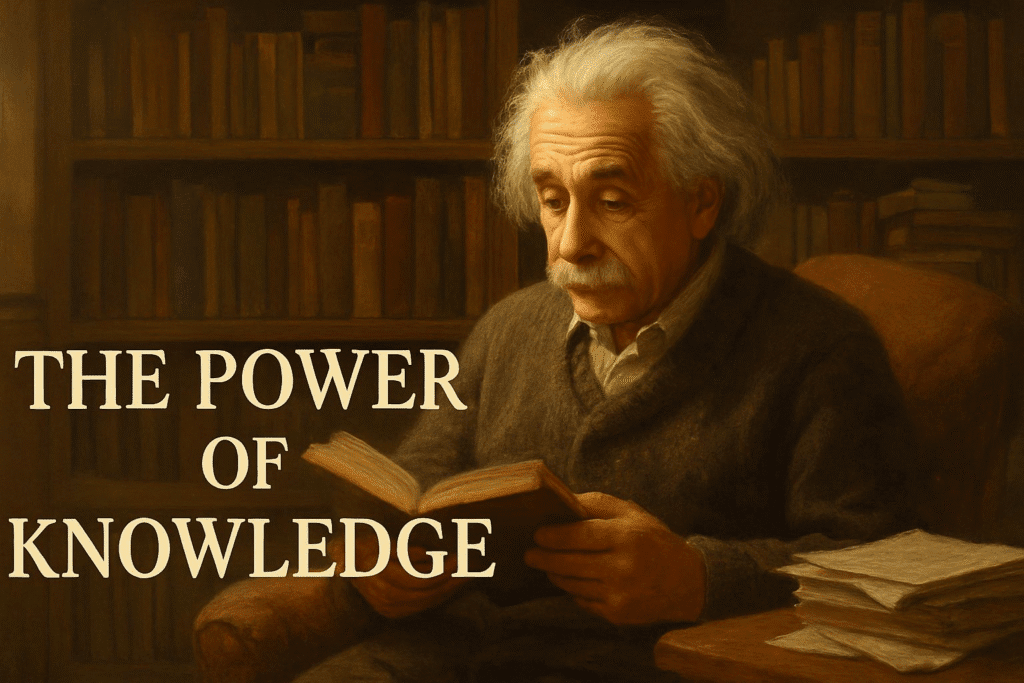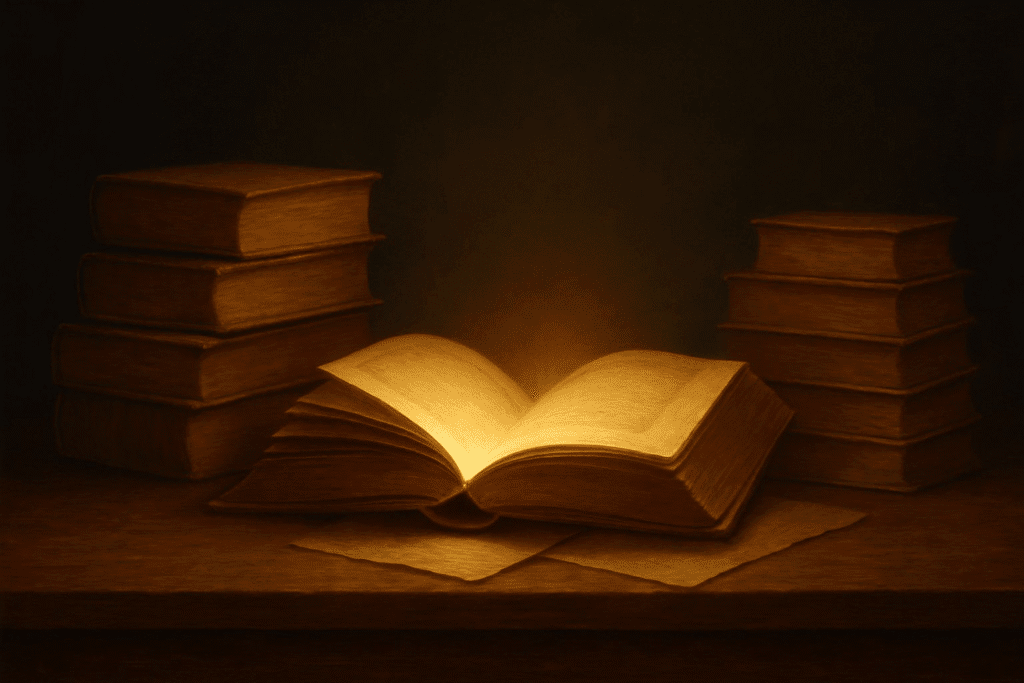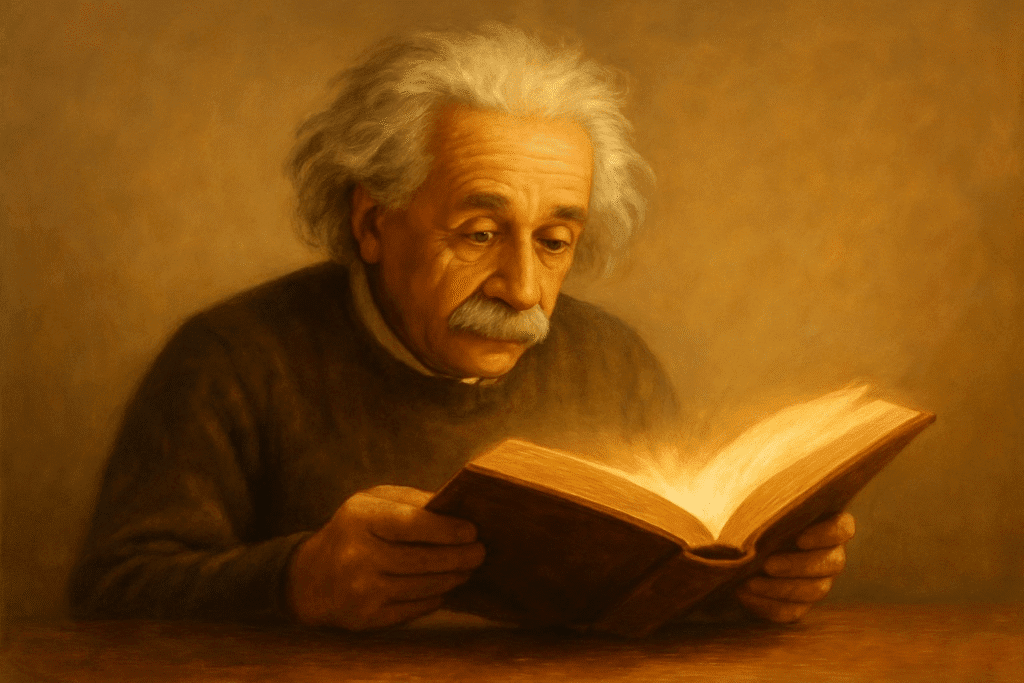Introduction

Think Einstein was born a genius? Think again. While his name is synonymous with brilliance, the truth about how Albert Einstein cultivated his extraordinary mind might surprise you. Forget dusty textbooks and rote memorization. The real story involves a voracious appetite for knowledge, fueled by a deep engagement with the written word. Did Albert Einstein truly immerse himself in a vast world of books Einstein read? Or was his genius sparked by something else entirely?
This isn’t just about whether Einstein read a lot of books. It’s about uncovering the surprising connection between dedicated reading and groundbreaking intellect. We’ll delve into Einstein’s reading habits, explore the potential contents of Einstein’s library, and examine how his engagement with various texts shaped his revolutionary ideas. Prepare to challenge your assumptions about the making of a scientific icon and discover the profound influence of reading on Einstein’s intellectual life. This journey into Einstein and knowledge might just change how you view learning forever.
The Myth of the Isolated Genius
The popular image of Albert Einstein often isolates him as a singular, almost mystically inspired genius, his groundbreaking theories appearing seemingly out of thin air. However, this romanticized notion obscures a crucial aspect of his intellectual development: his profound engagement with the written word. While his capacity for independent thought was undeniable, the bedrock of his brilliance was laid through a voracious and diverse reading life. To truly understand Einstein’s education and the genesis of his revolutionary ideas, we must move beyond the myth of the isolated thinker and recognize the indispensable role that books Einstein read played in shaping his understanding of physics, philosophy, and the very nature of reality. His journey wasn’t a solitary ascent but a continuous dialogue with the knowledge accumulated by thinkers before him, a dialogue primarily conducted through the pages of countless books.
Unpacking Einstein’s Library: More Than Just Physics Textbooks
When we consider Einstein’s library, it’s easy to imagine shelves overflowing solely with advanced treatises on mathematics and theoretical physics. While these undoubtedly held a significant place, his intellectual curiosity stretched far beyond the confines of his professional field. Accounts suggest a rich and varied collection, encompassing philosophy, literature, history, and even social and political thought. This broad intellectual diet was crucial in fostering the kind of flexible and interconnected thinking that led to his groundbreaking insights. It wasn’t just about absorbing scientific facts; it was about engaging with different perspectives, challenging existing paradigms, and cultivating a holistic understanding of the world – all nurtured by the diverse books Einstein read. This exposure to varied disciplines likely provided him with unique analogies and frameworks that fueled his scientific creativity, demonstrating that true intellectual power often stems from cross-disciplinary exploration.
The Early Seeds of Inquiry: What Shaped Young Einstein’s Reading Habits?
The foundation for Einstein’s lifelong pursuit of knowledge through reading was likely laid early in his life. While formal schooling might have sometimes felt restrictive to him, his personal exploration through books Einstein read seems to have been a constant source of fascination. Accounts suggest that even as a young boy, he was drawn to texts that explored fundamental questions about the universe. Thinkers like Kant and Euclid sparked his intellectual curiosity, demonstrating the power of logical reasoning and abstract thought. These early encounters with profound ideas through reading cultivated a habit of deep inquiry and a thirst for understanding that would characterize his entire life. This early immersion in complex ideas highlights how a stimulating reading environment can ignite a lifelong passion for learning and critical thinking, paving the way for future intellectual breakthroughs.
The Budding Scientist: Early Literary Encounters that Ignited a Revolution
The seeds of Einstein’s extraordinary intellect were sown early, and a significant part of that cultivation came through his early literary explorations. While the specifics of every book he encountered as a child might be lost to history, we can glean insights into the types of reading that likely fueled his burgeoning curiosity. It’s said that the gift of a compass at a young age sparked a deep fascination with the unseen forces of nature, a wonder that likely extended to his choice of reading material. Imagine a young Einstein poring over books that explained the marvels of the natural world, perhaps illustrated volumes on astronomy that opened his mind to the vastness of the cosmos, or narratives about inventors and discoveries that showcased the power of human ingenuity.
Beyond the purely scientific, exposure to imaginative literature could have also played a crucial role. Fairy tales and adventure stories, while seemingly unrelated to physics, can foster abstract thinking and the ability to envision possibilities beyond the immediate reality. These early encounters with narrative structures and imaginative worlds might have indirectly contributed to his later ability to perform thought experiments and visualize complex theoretical concepts. Furthermore, any early exposure to philosophical ideas, even in simplified forms, could have laid the groundwork for his later engagement with profound questions about space, time, and existence. The encouragement of inquisitive reading by family members or early educators would have been instrumental in nurturing this lifelong habit of seeking knowledge through books, setting the stage for the groundbreaking contributions to science that would later define him.
Beyond the Textbooks: How Reading Fueled Einstein’s Revolutionary Thinking

It’s crucial to understand that for Einstein, reading wasn’t a passive absorption of information. Instead, it was an active engagement with ideas, a catalyst for his own profound thinking. When he encountered a concept in one of the many books Einstein read, it wasn’t the final word but rather a starting point for his own mental explorations. He would dissect arguments, challenge assumptions, and synthesize different perspectives to arrive at his own unique understanding. This active engagement with the written word honed his critical thinking skills and his ability to approach problems from unconventional angles – a hallmark of his genius. The process wasn’t just about what he read, but how he read, transforming existing knowledge into entirely new paradigms.
The Influence of Key Scientific Texts on Einstein’s Work
While Einstein’s broad reading habits were crucial, his direct engagement with scientific literature was, of course, fundamental to his development as a physicist. He didn’t operate in a vacuum; he built upon the work of giants who came before him. Imagine a young Einstein meticulously studying the groundbreaking theories of Newton, Maxwell, and other pioneers. He wouldn’t have just passively accepted their findings but would have critically analyzed their arguments, identified limitations, and sought to build upon their foundations.
Consider his deep engagement with Maxwell’s equations on electromagnetism. These elegant formulas laid the groundwork for much of modern physics, and Einstein’s thorough understanding of them was crucial in the development of his own theories, particularly special relativity. He grappled with the implications of these equations, pushing the boundaries of existing thought. Similarly, the work of Lorentz and Poincaré on electrodynamics played a significant role in shaping his thinking leading up to his seminal 1905 papers.
It wasn’t just about absorbing established knowledge; it was also about engaging with contemporary scientific discourse. Einstein would have likely read journal articles, debated ideas with colleagues (both in person and through correspondence), and stayed abreast of the latest experimental findings. This active participation in the scientific community, fueled by his reading of current research, was vital for the evolution of his own ideas. He wasn’t just reading history; he was actively participating in the ongoing story of scientific discovery, building upon the foundation laid by those whose work he studied so diligently.
Einstein on Reading: Insights from His Own Words

While we can infer much about Einstein’s reading habits from accounts of his life and intellectual development, his own quotes offer direct glimpses into his perspective on the importance of reading and learning. He famously emphasized the significance of imagination and curiosity, qualities that are often nurtured and expanded through exposure to diverse narratives and ideas found in books. While specific titles he frequently referenced might be debated, the underlying message in his reflections points to a deep appreciation for the power of reading to stimulate thought, broaden horizons, and fuel scientific inquiry. Exploring Einstein quotes on reading reveals a mind that understood the profound connection between engaging with the knowledge of others and forging one’s own intellectual path.
The Breadth of Knowledge: How Diverse Reading Informed Einstein’s Scientific Intuition
Einstein’s groundbreaking work wasn’t solely a product of mathematical equations and laboratory experiments. His ability to make intuitive leaps and connect seemingly disparate concepts was likely fostered by the breadth of his reading. Engaging with philosophy, for instance, could have sharpened his understanding of fundamental principles and the nature of reality, providing a conceptual framework that extended beyond the purely empirical. Similarly, exposure to literature and history might have cultivated his empathy and his ability to consider problems from multiple perspectives. This cross-pollination of ideas, nurtured by the diverse books Einstein read, could have been instrumental in his ability to challenge existing scientific paradigms and formulate entirely new ways of understanding the universe. It underscores the idea that true innovation often arises at the intersection of different fields of knowledge.
Einstein: Not a Human Library Card
Hold on – did Einstein literally read everything? Unlikely! The man was brilliant, not a walking, talking Dewey Decimal System. His reading wasn’t about ticking off titles. It was a laser focus on what truly sparked his curiosity and challenged his brain. Think deep dives, not shallow scrolls. He wasn’t trying to win a “most books read” contest. His goal was to unlock the universe’s secrets, and the books Einstein read were tools in that ultimate quest. It was about quality of thought, ignited by the right words.
The Enduring Legacy: Reading as a Pathway to Intellectual Breakthrough
Einstein’s life serves as a powerful testament to the transformative power of reading. His relentless pursuit of knowledge through books Einstein read wasn’t just a hobby; it was a fundamental aspect of his intellectual methodology. It fueled his imagination, sharpened his critical thinking, and provided the foundational knowledge upon which he built his revolutionary theories. While innate talent undoubtedly played a role, his dedication to learning through reading underscores a crucial lesson for anyone seeking intellectual growth: engaging deeply with the written word is a vital pathway to innovation and breakthrough thinking. His story encourages us to see reading not as a passive activity, but as an active and essential ingredient in the cultivation of a brilliant mind.
Conclusion
So, did Albert Einstein read a lot of books? The resounding answer is yes. But more than just the quantity, it was the quality of his engagement with the written word – the deep dives, the critical analysis, the way he allowed diverse ideas to collide and spark new insights – that truly mattered. Einstein’s intellectual journey wasn’t a solo flight of genius; it was fueled by a lifelong conversation with the great thinkers who came before him, a conversation conducted through the pages of countless books. His story isn’t just a historical footnote; it’s a powerful reminder that reading isn’t a passive pastime, but an active ingredient in intellectual breakthrough. Want to unlock your own potential for innovative thinking? Perhaps it’s time to cultivate your own “Einsteinian” reading habits – not just consuming information, but truly engaging with it, letting it challenge your assumptions and ignite your own unique sparks of brilliance.
FAQ’s
Did Albert Einstein read a lot of books?
Yes, by all accounts, Albert Einstein was a voracious reader throughout his life. Reading was a fundamental part of his intellectual development and a key source of his knowledge and inspiration.
What kinds of books did Einstein read?
Einstein’s reading interests were broad, encompassing not only physics and mathematics but also philosophy, literature, history, and social commentary. This diverse reading likely contributed to his holistic understanding of the world.
Did reading directly lead to Einstein’s theories?
While reading provided the foundational knowledge and exposed him to different ways of thinking, Einstein’s theories were a product of his own unique insights and intellectual leaps. However, his reading undoubtedly informed and shaped his approach to scientific problems.
Were there any specific books or authors that heavily influenced Einstein?
Early in his life, thinkers like Immanuel Kant and Euclid had a significant impact. Throughout his life, he engaged with the works of many scientists and philosophers, though specific titles he cited as major influences are varied.
Is it necessary to read as much as Einstein to be successful in science or other fields?
While Einstein’s reading habits were extensive, the key takeaway is the importance of continuous learning and intellectual curiosity. Engaging deeply with relevant material and cultivating a habit of inquiry are crucial for intellectual growth in any field.
